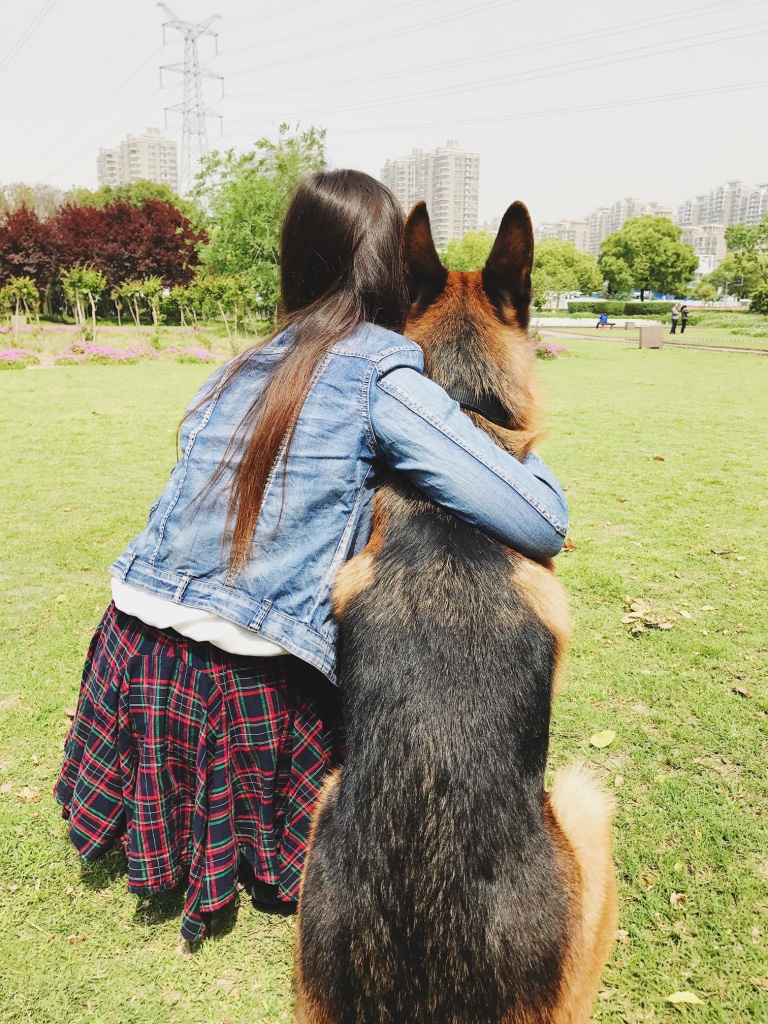People started raising dogs about 14,000 years ago. Dogs are believed to be the very first domesticated animals. I have a dog as well, a 4-year-old German Shepherd called BeiBei. BeiBei came to my home when he was only three months old. At first, he was naughty and a little bit ‘aggressive’ (because nobody had ever told him not to bite and biting was his particular way to play with others), but finally he became a clever, loyal and friendly grown-up.

A photo of BEIBEI and me. (credit to baojing Jin, My mum)
For centuries, dogs are considered as the best friends of humans. When it comes to dogs, ‘friendly’ must be the first word popping up in most people’s heads. However, wolves, another species from canis, were first cultivated by humans due to some evolutionary advantage but nobody succeeded at all. And even baby wolves were not likely to be docile.
So have you ever thought about why, exactly, dogs are much more friendly than wolves or other kinds of animals? The answer remained unknown until 2010, when a study on DNA of dogs and wolves was published by Bridgett, a geneticist from vonHoldt of Princeton University, and colleagues.
The core difference was discovered in a gene related to social behaviours called WBSCR17, which claimed that the gene difference makes dogs so friendly and influences dogs’ domestication. Gene difference is also the reason why dogs can be trained to sit or shake hands using food rewards while you might be dead right away if you are trying to do the same things to wolves.

He sat down in order to get the frisbee from my hand. (credits to myself)
So a new project comparing the DNA of domestic dogs and wolves raised by humans was carried out then. In the experiment, dogs seemed to pay more attention on humans than wolves. Analyzing the DNAs of them, genes called GTF2I and GTF2IRD1, other than WBSCR17, are different. In addition, these genes are also related to the social behaviours in humans. What’s more, WBSCR17 genes help dogs adapt themselves to live with humans. Similar, other domestic animals, namely cats and mice, have genes of the same functions enabling them to be tamer than wild animals.
So now you can answer the question: Why are dogs so friendly? The reason is just a handful of changes in special genes, GTF2I and GTF2IRD1 and WBSCR17. From the perspective of genetics, dogs are indeed good friends of humans.
-Xinyue Chen

3 responses to “Why are dogs so friendly?”